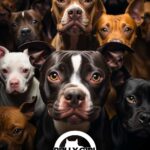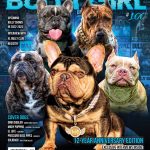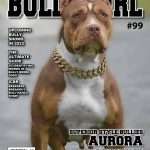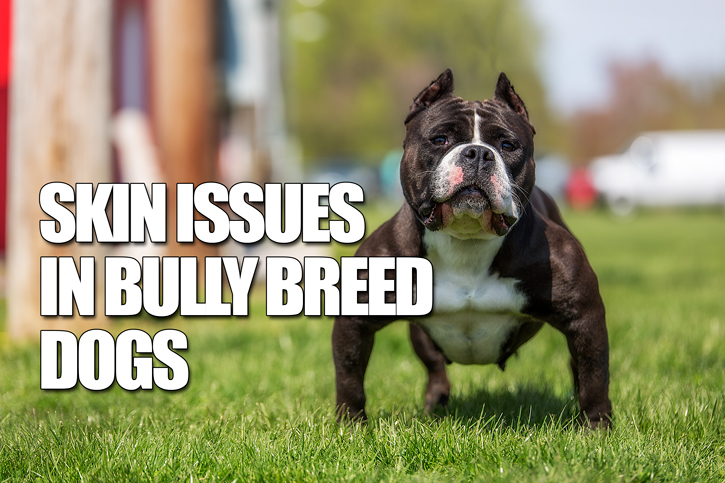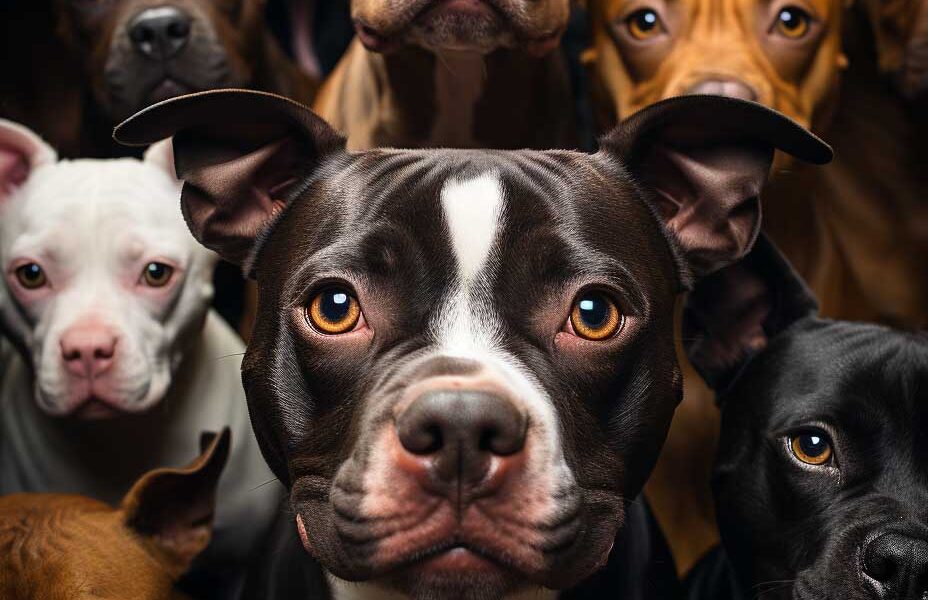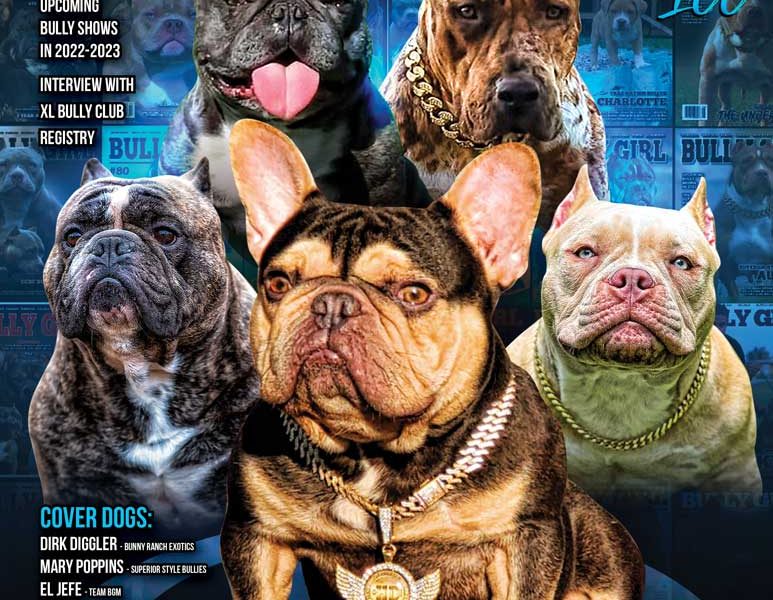Skin issues in Bully Breed Dogs are nothing to take lightly. These skin issues can range from dry or dull fur, to one small bald patch, all the way to partial or full body hair loss! If you are currently dealing with coat issues, on a scale of 1-10 where does your hairless dog fit into the hair loss spectrum?
Dogs with “blue” or grey coats tends to be the most likely to have skin issues. If your hair condition is minor, its most likely manageable on your own. Stay away from pet store food brands with lots of processed bi-parts, and chemical additives, they are most likely your cause of itchy skin irritation. Most people will argue the point they have had their pet on the same food for years and never had this problem until now. Please ignore whatever you think you know, and try switching your food, just to see if it helps. Switching to a raw diet often leads to improved coat health and appearance, you will begin to see results in a very short period of time. A raw diet is much healthier for your pet from a nutritional standpoint, which you will easily be witness to from their new shiny healthy coat.
If you are not going to switch to a raw diet adding a Fish Oil or Vitamin E supplement can help with coat condition and appearance as well.
More severe coat conditions will need more serious and deeper discussion. There is a condition found in both animals and humans that can cause your pet to go completely bald. It is known as Alopecia.
Alopecia is the complete or partial hair loss in an area which normally grows hair. This skin disease can happen in any breed of dog and needs to be treated and monitored under vet care.
The causes for Alopecia range from allergies, to inherited disease also referred to as Inherited or Acquired.
The most common causes are : Food, fleas, Folliculitis( infection within the fair follicles) and Mange.
Under the acquired NON-inflammatory category causes include: acral lick dermatitis, calluses and gestational hair loss.
How do you know if your dog is simply having a skin reaction to something or if your coat condition is caused by Alopecia? Talk to your vet! There are many things a seasoned pet owner can assume, but in some cases its best to leave the diagnosis to the pros. Your vet will most likely do a physical exam along with a skin scape. They may also order blood and urine to confirm or rule out metabolic disorders.
What should you do if you vet diagnoses your dog with Alopecia?
Now that your vet has confirmed Alopecia, how do you go about beginning a treatment? Acquired inflammatory causes are all treatable by destroying the culprit. Rid your pet of the source or their discomfort and the hair will begin to grow naturally again. Your vet will most likely give a topical medication as well. You can also ease your dog threw the healing or diagnosis process with medicated shampoos, and vitamin supplements. For genetic or inherited forms of Alopecia, your vet may have success in treatment by a lifelong hormone replacement medication. Essential fatty-acids, Vitamin D, and oral melatonin supplementation have been found to be safe and effective in stimulating hair re-growth and improving overall coat condition in dogs. Based on the degree of the hair loss and your pets normal bodily functions hair regrowth can take months so be patient.
The Chinese Crested is a dog that is actually bred to be hairless. Despite this being their natural appearance. They need routine fur and skin care to remain healthy and comfortable. They are at risk to the elements just as a dog with Alopecia would be, and would need to follow the same hot & cold skin protection which will be discussed now.
If you have a temporary or a permanently hairless & patchy dog, you will need to protect them from the hot and cold. A dogs coat normally acts as their “winter coat and sunscreen”. Therefore without a healthy coat your dog is exposed! In the colder months make sure to outfit your dog in a sweater or coat to keep his body temperature from dropping. In the summer your dog can actually get a sunburn on their hairless parts. There is only 1 approved sunscreen for dogs. It is called the Epi-Pet Sun Protector. Pet sunscreen can be used on dogs suffering from hair loss and also on dogs with lighter color skin. Please note this product is NOT safe for cats. Dogs are susceptible to sunburn and skin related cancers just as humans are so it is very important to protect your pet if they are going to be enjoying the outdoors in both hot and cold weather conditions!


